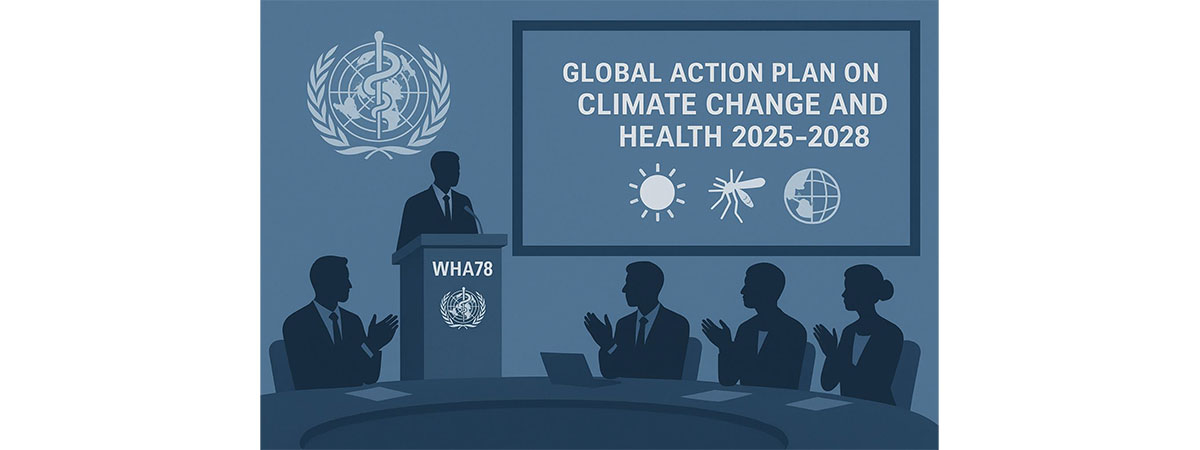WPA Welcomes Historic Adoption of Global Action Plan on Climate Change and Health at WHA78
The WPA welcomes the landmark decision by the Seventy-eighth World Health Assembly 2025 (WHA78) to adopt the first-ever Global Action Plan on Climate Change and Health (2025–2028). This groundbreaking plan signals a decisive move to place health at the center of the global climate agenda, a long-overdue recognition of the deep and growing impact of climate change on patient health and well-being worldwide.
As climate-related health threats intensify from heatwaves and air pollution to the spread of vector-borne diseases and food insecurity, patients are increasingly on the frontlines. The Global Action Plan offers a strategic framework for building climate-resilient, low-carbon health systems while protecting vulnerable populations and integrating health into broader climate finance and policy.
Putting Patients at the Heart of Climate Action
The WPA applauds Member States for acknowledging that climate change is not just an environmental crisis, it is a health crisis, and more specifically, a patient crisis. People living with chronic conditions, disabilities, and in underserved communities are disproportionately affected by extreme weather, disrupted health services, and deteriorating environmental conditions.
WPA calls for the meaningful involvement of patient communities in the implementation of this plan. Patients’ lived experiences must inform efforts to strengthen surveillance and early warning systems, enhance emergency preparedness, and ensure equitable access to healthcare during climate-related disruptions.
Key Elements of the Global Action Plan
The 2025–2028 Action Plan, adopted under decision EB156(40), provides a unified framework for action by WHO, Member States, and stakeholders. It outlines four major priorities:
Developing climate-resilient and low-carbon health systems, ensuring that health infrastructure can withstand climate shocks while reducing the sector’s environmental footprint;
Enhancing surveillance, early warning, and risk management systems, particularly in climate-sensitive health areas;
Protecting vulnerable populations, including the elderly, children, and those with existing health conditions;
Integrating health into national climate policies and financing mechanisms, enabling sustainable and health-oriented climate action at all levels.
This strategic direction builds on commitments from past COPs and aligns with WHO’s growing leadership in the climate and health space.
A Call for Inclusive Implementation
While the adoption of the plan is a milestone, WPA underscores the need for inclusive and equitable implementation. We urge WHO and Member States to:
Involve patient organizations and civil society in national climate and health strategies.
Prioritize health equity and safeguard access to essential care during climate emergencies.
Ensure that climate finance mechanisms support health interventions, especially in low- and middle-income countries.
Promote education and awareness about the intersection of health and climate change among patients and providers alike.
A New Chapter in Global Health
The adoption of this Global Action Plan marks a new chapter in the fight against climate change, one where health is no longer an afterthought but a driving force. The WPA stands ready to support the implementation of this plan by advocating for patient-centered policies, amplifying community voices, and collaborating with global partners.


